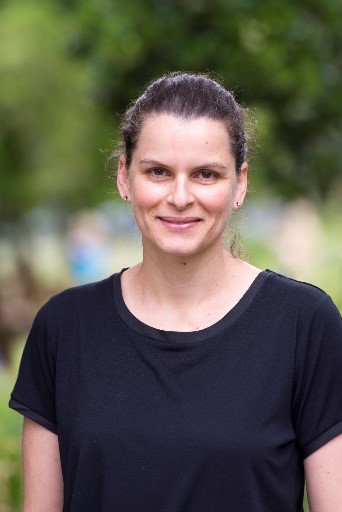Brain and Cognitive Function in HD: A MEG Study
Spatial memory is the type of memory that helps us remember how to get to places in the environment (for example, going from home to work). This type of memory can be affected in early stages of Huntington’s disease, before motor symptoms occur.
Tests of spatial memory are used in animals in the early stages of drug development, but not in later stages of drug trials in people with Huntington’s disease.
How am I investigating spatial memory?
I am using virtual reality technology to measure spatial memory in Huntington's disease combined with Magneto-encephalography (MEG) to determine how, and where in the brain, spatial memory is affected.
What will we learn from this research?
Our results will help improve the way new drugs for Huntington’s disease are assessed in terms of their effect on cognition (e.g., thinking, memory, learning).
Who is eligible?
- Men and women, 18 - 65 years old.
- No history of neurological injury (e.g. traumatic brain injury, stroke).
- People who are gene positive for Huntington’s disease but have not received a diagnosis.
- People without a diagnosis of Huntington’s disease and no family history of the disease.
What will you need to do?
- Complete some screening questions to make sure you are eligible to take part in the study.
- Undergo MEG scanning for approximately 1 hour.
- Undergo MRI scanning for approximately 10 minutes.
- Complete some paper/pencil and computer-based cognitive and mood tasks.
Where will you need to go?
Swinburne University (Hawthorn Campus). Testing takes approximately 3 hours in total. We strongly recommend using public transport, and provide $40 to cover any travel and time costs.
Ethics Approval: Monash University Research Ethics Committee (MUHREC) : CF14/2836/ 2014001566 Swinburne University Ethics Committee: Project number 2014/343.
